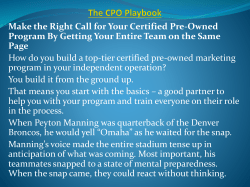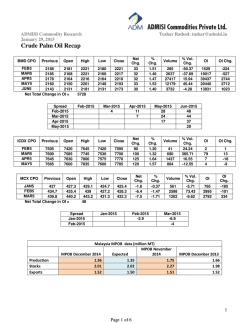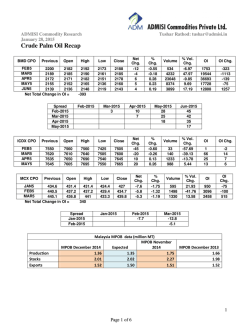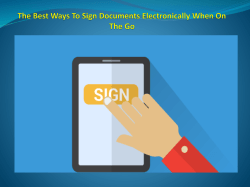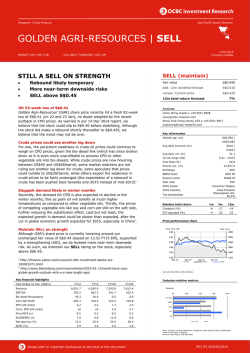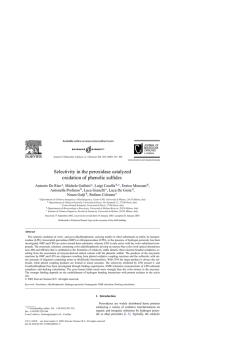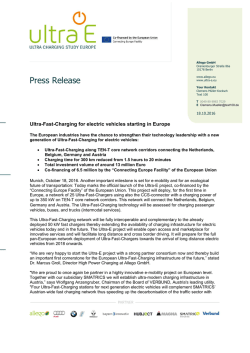
Keep Your Focus on the Future With a Certified Pre-Owned Program That Gives Independent Dealers an Edge With Millennial Car Buyers
Keep Your Focus on the Future With a Certified PreOwned Program That Gives Independent Dealers an Edge With Millennial Car Buyers An axiom of military history says that generals spend all their time planning to fight the last war, making them ill-prepared for the next war. That same thing is happening with vehicle dealers today. They are planning for the future as they did with the past. The past was about the baby boomers. The future belongs to the millennials, and they are very different shoppers. Unlike their parents, millennials are ultra-frugal about their purchase of vehicles. Big box dealerships with their $20 million price tags that impressed their parents are a turn-off and an unneeded expense to this group. The millennial generation likes to buy vehicles others have taken the depreciation on – but they also show a tendency toward the security provided by new car warranties. That makes the millennial group perfect for the used car industry for a couple of reasons. For one, used car dealers can couple vehicles that have depreciated with a remaining factory warranty. And they can certify pre-owned vehicles as a viable way to let millennial buyer enter into vehicle ownership. Two factors make the millennial demographic predisposed to looking at the certified preowned option. The first is their propensity to buy used cars, and with that, a higher rate of acceptance of CPO vehicles. The second is their desire to be secure from the added expenses caused by mechanical breakdown. That makes a majority of millennial used vehicle purchasers open to a certified vehicle purchase. Millennial buyers consider themselves much savvier buyers than their parents were because of their ability to use mobile devices. But they are not necessarily as educated on all aspects of CPO as their predecessors. A study conducted this year by NADA Used Car Guide found 50 percent of 18- to 34-yearolds – millennials – said they were slightly or not at all familiar with CPO programs, a higher percentage than older generations. They are, however, willing to learn, and they will add value to the product and increase their purchases of CPO vehicles when they are educated on those aspects. Even though they are looking for the security provided by CPO, they are not sure about the parts of the certification process that provide that security. Millennials are much less likely to understand the value of the inspection aspect of the program, nor do they in general grasp the warranty portion. But, like other buyers, when those components of the program are explained, millennials’ chances of purchasing a CPO unit rise. According to Autotrader’s 2015 CPO Study, 68 percent of used car shoppers said they would consider buying a CPO vehicle from the beginning, but once they learned the definition of what CPO really means, that number rose to 83 percent. One of the most compelling aspects of marketing to the millennial generation is their willingness to learn and accept new ideas – that is, as long as the learning can be done via the Internet. That’s where millennials shops and learn about products. Autotrader’s 2015 Automotive Buyer Influence Study found 74 percent of online shoppers say they use a smartphone or tablet to do their research – almost double the percentage from the previous year’s study – and millennial customer are at the forefront of that trend. The Internet is the most likely place for a millennial to find out about certified pre-owned program, other than a personal visit to the dealership. The problem with customers finding out about the benefits of CPO after they’ve done their dealership research is, while it helps sell the vehicle, it doesn’t help convince customer s to visit your store. Marketing to social media outlets with an educational message about CPO is the best way to reach this very valuable group of consumers. Millennials shoppers are much more likely to get their information from those sources – and to process and believe it – than the preceding generations. Reaching millennials means getting those customers to your website. While they very much rely on in-person sales experience, their purchase process begins on their tablet or smartphone, long before they arrive at the dealership. Carrying certified pre-owned vehicles that hit this group’s “cool factor” is the best way to reach the segment. Using search criteria millennials prefer increases the likelihood they will see you first. Millennials may dream of Audi, Mercedes and BMW, but they are more likely to search for Honda, Chevrolet, Toyota and Ford, in that order. They also have a penchant for off-brand or discontinued vehicles like the Chrysler Pacifica, Dodge Magnum and Chevrolet TrailBlazer. Factory certification programs only certify up to six years, so independent used car dealers who can find a reputable national certification program that will certify back to the mid2000s and beyond, such as the NIADA Certified program, can attract customers who are looking for those special vehicles and still want the safety and reassurance provided by CPO inspections and warranties. Millennial customers are going to spend more time on third-party and dealer websites than their older counterparts. People who spend the most time on those sites tend to be CPO shoppers – or they become CPO shoppers during the shopping experience. The more time customers spend looking on the Internet, the more they are able to focus on specific models and equipment and the more time they have to learn the advantages of a particular dealer’s services, commitments and ethics, which can be broadcast on the dealers’ sites and are an integral part of a CPO program. Millennial shoppers are looking for security in their vehicle purchase and ownership, and having a warranty can create that peace of mind for buyers who cannot afford a new vehicle or just want to spend as little as possible to avoid the depreciation attached to the purchase of a new vehicle. CPO is more important to this frugal generation because they don’t want to save money by buying a used vehicle only to discover they have bought someone else’s problems. Using tools such as Carfax, AutoCheck or any of the vehicle history reports gives a sense of the vehicle’s past, and an inspection and a warranty provide additional peace of mind. That has a real tangible value in the view of the millennial buyer. Even frugal car buyers see a real monetary value and willingly pay a premium for a certified vehicle. In fact, according to Autotrader’s 2014 Certified Pre-Owned Study, millennial CPO purchasers pay an average of $2,000 more for a vehicle that has been certified. Finding the right vehicles for that group of buyers and a certification process that they can buy into – along with announcing on your website a commitment to the certification process and a great partnership to deliver the coverage to the customer – is a sure way to attract millennials’ business. The most common reason consumers don’t purchase certified vehicles is simply a lack of awareness of CPO programs. Autotrader’s 2015 CPO Study showed that while consumers’ familiarity with CPO is steadily rising, only 49 percent of used car shoppers surveyed said they were familiar with certified pre-owned vehicles. But when they learn about what’s involved in the CPO process, most consumers see the value in the inspection and warranty. The same Autotrader study found the peace of mind that comes with certification and warranty are the two top reasons cited by customers for buying CPO vehicles. That means if you can get the millennial customers to your website, it becomes a matter of selling the customer on the right car – one that fills their needs but still leaves room for the protection that generation demands in the products they buy. In other words, if you can get your message to where millennials shop, 90 percent of those shoppers are going to see value in the CPO inspection process and the warranty attached to it. It is very apparent from market research that the places millennials prefer to get their information are online from third-party sites, and the dealer’s own website is the nextmost popular place. Where they do not go for information are OEM sites – they prefer unbiased accounts to what they perceive as propaganda from the manufacturer. Millennial customers are the future of the automotive industry, which should be music to the independent used car dealer’s ears. Those buyers are not going to behave as their parents did. Things that turn on their parents, such as the glitz and glamour of new car facilities and the prestige of new car ownership, are not the kinds of things likely to ensnare millennials. While many auto dealers continue to approach their target marketing from a baby boomer mindset, those who tailor their marketing and operations toward the millennial generation will find their stores staying relevant to a huge vehicle buying demographic for many years. So how do independent dealers move forward from yesterday’s playbook of success and prepare for this buying segment’s preferences? They must first recognize this is a different that is going to behave in a different manner from its predecessors and must therefore be approached in a different manner. Independents will have to find ways to reach millennials in their favorite social media spots. Dealers might have to stock vehicles to which today’s younger buyers assign a certain cachet of ownership. Millennials are not willing to forgo the security of warranties and service contracts to get these older vehicles. That makes it important to find a national partner for the certification process that has the three items it takes to be a good finance product – claims, coverage and an overall drive toward customer service – and can reach back to the early 2000s to cover the vehicles the millennial generation values and can afford. Aligning with a program like NIADA CPO that does all that allows independent used car dealers to attract millennial buyers to their vehicles and deals using their lower overhead. Millennials want to be able to shop using smartphones and texting for communication until they are ready to meet face-to-face, but they also want a dealership experience and a demo ride when it is time to buy. Millennial buyers care most about the warranty and inspection and will pay a premium for it, and will become your loyal customer for life. While others are still chasing the boomers, you can set up a program geared toward the future, selling to the millennial generation via the media they dwell in. For more details about Warrantech feel free to visit: https://warrantech.com/blog/february-2017/don%E2%80%99t-look-back/
© Copyright 2026
